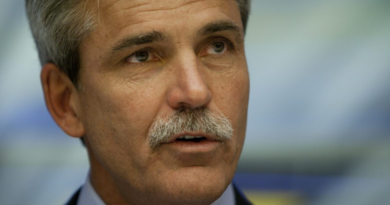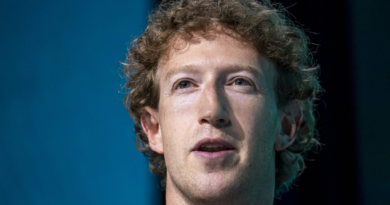Anti-aging fanatic Bryan Johnson praises 80-year-old Larry Ellison for ‘doing a good job managing biological aging’
In addition to Oracle founder Larry Ellison’s $206 billion net worth and his $456 billion enterprise software company, the 80-year-old has attracted attention for another reason: His youthful glow.
Bryan Johnson, a 47-year-old tech founder who invests $2 million a year in his own anti-aging efforts, recently remarked upon Ellison’s appearance. “Ellison, now 80, is doing a good job managing biological aging,” Johnson wrote on X Sunday.
Fighting the inevitable and universal experience of growing old has been a project of Ellison’s for years. He’s donated over $350 million to research on aging and age-related disease. With a self-described “addiction to winning,” Ellison, the newly crowned second-richest person in the world, has applied a similar urgency to his personal health. He’s been known to sip carrot juice and frequent the gym for hours a day. Gina Smith, co-founder and editor-in-chief of media site aNewDomain, said in a 2018 Quora post that when she worked with Ellison in the 1990s and 2000s, he drank only green tea and water, and largely ate fish, vegetables, and fruit.
Mortality has perplexed Ellison for decades. His biological mother left his family when Ellison was a child, and his adoptive mother died of cancer during his time in college.
“Death has never made any sense to me,” Ellison told biographer Mike Wilson. “How can a person be there and then just vanish, just not be there?”
Ellison, now 80, is doing a good job managing biological aging
— Bryan Johnson /dd (@bryan_johnson) September 16, 2024
Fortune has contacted Ellison and Johnson for comment.
Why do rich people want to live forever?
But it’s not just Ellison trying to fill his cup in the fountain of youth. The effort to defy aging has become a growing fascination of CEOs with ample funds to throw at the pursuit. Take tech giant Johnson, whose “Blueprint protocol” for reversing his biological age to 18 includes taking over 100 supplements a day, finishing his last daily meal at 11 a.m., and receiving blood transfers from his son.
Like Ellison, Johnson has confronted the mortality of a loved one. Johnson has offered blood transfusions to his own father, who, in his early 70s, is also undergoing gene and stem cell therapy.
“When you feel his vibrancy for life, he rages against death,” Johnson told Fortune in February. “That inspires me. I understand that in a world where death is inevitable, it feels like a hopeless situation to fight. In a world where death is a maybe, it’s a different equation. My dad fills that.”
Defeating age has become a fascination for the likes of Google co-founder Larry Page, who created Calico Labs, a lavishly funded center for aging research; and Amazon founder Jeff Bezos, who created Altos Labs with billionaire Yuri Milner, enlisted several academics to research the reversal of cell aging. Former PayPal CEO Peter Thiel has taken daily human growth hormone pills and plans to be cryogenically frozen after his death.
The pursuit of ever-lasting youth, via blood transfusions and hormone therapy, is expensive. Some people think that if it works, it might widen the disparities between the haves and the have-nots. “The longer you’re around, the more your wealth compounds,” Christopher Wareham, a bioethicist at Utrecht University, told the Financial Times. “And the wealthier you are, the more political influence you have.”


